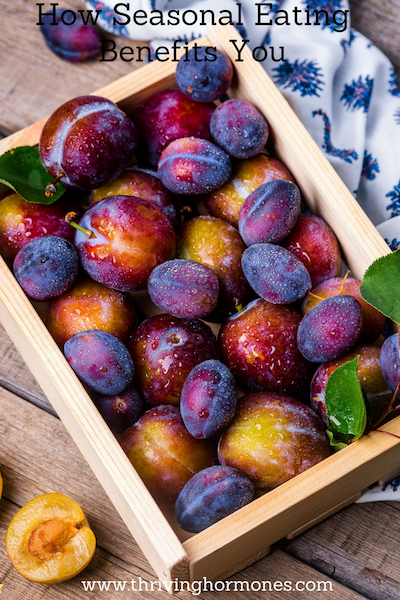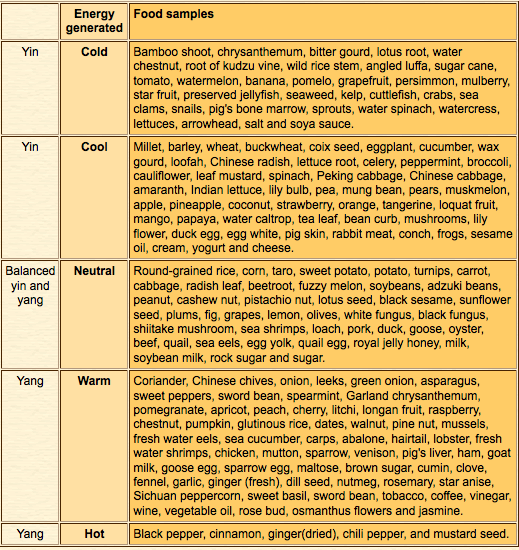How Seasonal Eating Benefits You
You might have heard that seasonal eating is the healthiest.
My best memories of childhood and my country are the abundance of seasonal food. We hardly ate food, which wasn’t in season. We did not have fancy exotic fruits or vegetables. From the late spring to late fall we eat only food which was in season, grown locally, and then we were preserving it so we will have fantastic food for winter.
Traditionally humans used to eat seasonal and locally grown food. Before the invention of modern transportation, we only ate what was in season. Modern technology has changed that traditional way of eating today. Nowadays, we can get any food at any time of the year regardless of the season or environment in which it is grown. For some, it might sound amazing because we can experiment and try different food but actually, it’s not all that healthy and good for us.
Eating seasonally simpler and healthier. There are benefits of eating foods that are available at their peak to the contrary of eating fruits and vegetables from all over the world, which contributes to destroying the environment (burning a lot of fossil fuel to ship the goods), weakens immunity, loss of vitamin and minerals, and weakens the digestive system.
The food, which is shipped from around the world to get to you, is picked before the peak of their flavor and health benefits to surviving the long trip (or be allowed to mature while they travel) to your local grocery store.
Eating seasonal and locally grown food aligns not only with the external environment and internal environment (the body and it’s organ systems), creating a system that is prepared for the elements. For example, on a cold winter day, great soup or stew would be perfect because it has warming properties. On a hot summer day, smoothie, juicy fruits, salad greens, freshly caught fish would be ideal because this type of food has cooling properties.
Nowadays, thanks to all big grocery stores we can buy organic berries or exotic fruits whenever I want, even when it’s -15 degrees outside. To me, it doesn’t feel right because my body craves what is actually in season. In Chinese Medicine eating seasonally help to balance the yin and yang, or warm and cool.
How we look at food in Western Culture is different than Chinese Medicine or Ayurveda. We check the food for protein, vitamin, minerals, fat, and carbs and don’t look at the energetic properties of food like in those above. It is essential to look at what foods are warming and cooling as well as look at the color, flavor, and energy of food because it helps us balance our specific organs.
We know that the weather has an impact on our bodies, so you can assume that seasons will impact your body as well. We need different food and nutrients at different time of the year. Food has a different energy and affects our bodies differently. Some foods have warming energy (cooked food, potatoes) and some food has cooling energy (salads, avocado). The cooking process will often change the energy of raw food. Cooking causes the food to have a warming effect on the body. You can take an apple, which has cooling properties, and bake it with cinnamon (a warming herb) and this will warm the apple energetic effect.
The method in which you cook is essential because it changes the energetic food properties. The baking and sautéing method adds warm (yang) and dry energy to the food. Steaming adds yin (cool) and damp energy. We can use different cooking techniques during different seasons. We know that we carve warm and hot food during fall and winter because that keeps us warm and satisfied. During spring and summer, we tend to eat more cold food like salad, juicy fruits, etc. Nature and our bodies know everything.
All of these properties impact our bodies differently. Too much dampness may cause infection (moisture help breed bacteria, mold, and fungus). Too much dryness in the body can deplete fluids; can cause constipation, dry cough, and more. Some foods can be warming even in their raw form, like raw walnuts, raw garlic, and raw basil. It is helpful to know those properties so you can help your body to be in balance.
Traditional Chinese Medicine teaches us that fruits, vegetables, salads, are naturally cooling to the body. During summer months the cooling effect can be beneficial for most people; but during the winter season, this more than likely will create a damp condition, which can contribute to gas, bloating, cold hands and feet. This can eventually lead to more serious ailments like impaired immunity, blood stagnation, and cancer. Eating cooling food during winter is not the best idea. Better food for a snowy, cold day will be hot soup, grass-fed meat, beans, a hearty stew made with bone stock, and root vegetables. During the cold season (fall and winter) our bodies will naturally store fat, and our endocrine system slows down to help you thrive.
In Ayurveda, there are three seasons (spring, summer, and winter – winter includes fall) and three doshas (Vata, Pitta, and Kapha). They govern the constitution and everything else in the universe and cosmos. It is essential to understand those qualities of each season because they will help you to stay healthy and reduce any adverse effects.
Chart from www.shen-nong.com
All of the seasons are based on ancient system medicine and the basic components of nature like air, space, fire, earth, and fire.
Spring /Kapha season is composed of earth and water. During Spring snow melts, it is wet and rainy, so people during this time may have issues with congestion, water retention, allergies.
Summer/Pita season is composed of fire and a small amount of water. Summer is hot and intense. People during this season might have issues with digestion and metabolism.
Winter/ Vata season is composed of air and space. It is dry, windy and cold. It is responsible for blood circulation, breathing and movement through the digestive tract.
If we don’t follow a diet, which supports us during those times, our bodies will be out of balance.
Seasons and foods:
Spring is the season of action and growth. This is an excellent time to eat sour foods to stimulate and cleanse the system – (lemons, pineapples, apples, celery)
Summer is the season to eat for energy and food, which helps to cool like: energetically cooling fruits and vegetables (ex: avocado, kiwi, lettuce, watermelon, etc.). During late summer you need to help your digestive system to get stronger and support it with orange and yellow food, like apricots, cantaloupes, corn, and chickpeas.
In the fall, pungent foods and herbs are ideal to help stimulate and clear the lungs (horseradish. peppermint, millet and pear).
Winter is a season to keep you warm and it is the perfect time for stew, hot casseroles, hot soups, root vegetables, squashes, rhubarb, pumpkins, and sweet potatoes, warming herbs like rosemary, ginger, or cinnamon.
General rules for the energy of foods:
If it grows in the air and sunshine, it is probably yang;
If it grows in the earth and darkness, it is probably yin;
If it is soft, wet and cool, it is more yin;
if it is hard, dry and spicy, it is more yang.
Chart from www.fastcompany.com
In conclusion, if we don’t eat food that grows in our climate we live in or the season we live in, it can send mixed messages to the body, and our body will become “imbalanced.” This way of eating can set us up for a bunch of different problems and potentially an illness.
Eating what grows in our climate and our environment is very important for the health of our body, mind, and spirit. I believe that this way of eating keeps us connected to nature, where we live, community and health.
Eating locally grown seasonal foods tastes better and supports local farmers and communities!
I invite you to find out what’s growing in your area and to visit a local farmer’s market, or join a CSA (community-supported agriculture). This way you’ll always know what’s in season!
Check out the Sustainable Table website to see what foods are seasonal in your region of the world and start eating seasonally.
Check out my Seasonal Gentle Winter Detox! Click on the image!
In Health
Angie
References:
https://www.banyanbotanicals.com/info/ayurvedic-living/living-ayurveda/seasonal-guides/summer-guidehttp://www.superlife.com/seasonal-eating/https://draxe.com/eating-seasonally/





